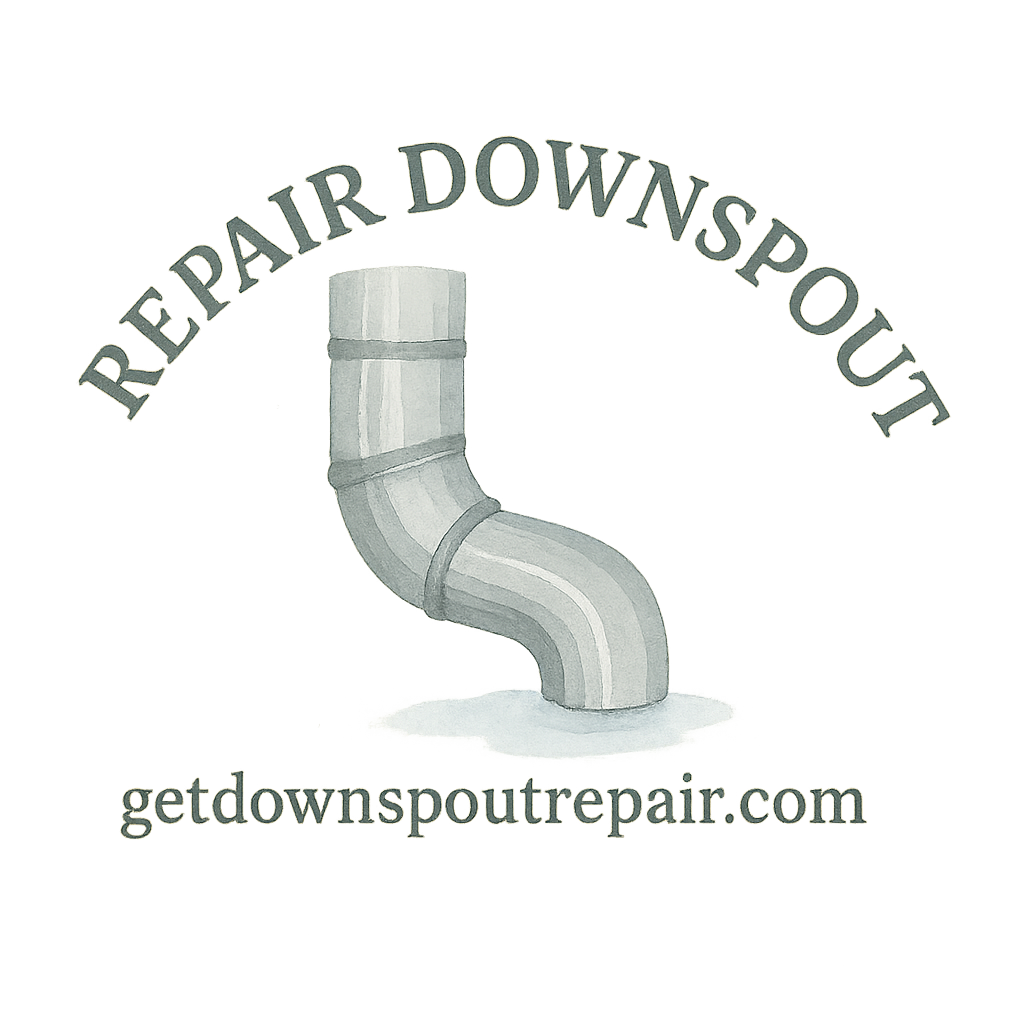Introduction: Why Downspout Maintenance Matters
Let’s face it — your downspouts probably aren’t getting the love they deserve. Most of us don’t think twice about them until water starts pooling near the foundation or the basement floods. But here’s the truth: with just a bit of care and a few smart hacks, you can extend the lifespan of your downspouts and avoid costly repairs.
In this guide, we’ll go over 5 genius DIY hacks that’ll help you keep your downspouts in tip-top shape. Whether you’re a first-timer or a seasoned weekend warrior, these tips are doable, affordable, and totally worth the effort.
Understanding Downspout Lifespan
Before we dive into the hacks, let’s break down what affects how long your downspouts actually last.
What Shortens a Downspout’s Life?
- Clogging from leaves and debris
- Rust and corrosion, especially on metal types
- Poor installation or lack of support
- Neglected damage, like cracks or dents
Frequent clogs can even lead to water backing up into the gutters, which eventually causes water damage (source).
Common Downspout Materials and Their Durability
- Aluminum: Lightweight, resists rust, lasts 20–30 years
- Galvanized Steel: Durable but prone to rust, lasts 15–20 years
- Vinyl: Inexpensive but cracks in cold, lasts 10–15 years
- Copper: Super durable and pretty, can last 50+ years
Want to compare materials and costs? Check out this costs and materials guide.
Hack #1: Regular Cleaning Keeps It Flowing
If you only follow one tip, make it this: clean your downspouts regularly. It’s like brushing your teeth — it prevents bigger problems down the road.
How Often Should You Clean?
- At least twice a year — once in spring and once in fall
- More often if you live near trees
Neglecting this step? You’re basically begging for a clog. Speaking of which, see our clog prevention tips to stay ahead.
Tools You’ll Need
- Ladder
- Garden hose
- Gutter scoop
- Plumbing snake (for stubborn blockages)
Best DIY Tools for Cleaning Downspouts
Don’t miss our roundup of DIY tools to make your life easier. There’s even a power attachment for your hose that blasts clogs away in seconds!
Hack #2: Secure Loose Brackets Before It’s Too Late
You know that weird rattling noise during a storm? Yeah, that’s probably your downspout coming loose.
Spotting Loose Connections
- Brackets pulling away from the wall
- Visible gaps or sagging sections
- Water leaking at the joints
You’ll want to inspect the supports during every cleaning session.
Reinforcing Your Downspout Anchors
- Tighten screws or replace corroded ones
- Use brackets every 4-6 feet for stability
- Add corner straps for long runs
Want to learn the repair basics? Our repair guide has all the details.
Hack #3: Use Splash Blocks or Extensions Strategically
What’s the point of directing water off your roof if it just pools at your home’s base?
Directing Water Away from Your Foundation
Without proper drainage, you risk foundation damage — and that’s expensive. Install a splash block or a downspout extension to guide water several feet away.
Check out drainage protection tips to see how the pros do it.
Choosing the Right Extensions
- Vinyl or accordion-style for flexible angles
- Buried extensions for hidden systems
- Rigid pipe extensions for heavy flow areas
Looking for help installing extensions? Try some DIY fixes to save on contractor fees.

Hack #4: Apply Rust-Proof Coating
Metal downspouts, especially steel ones, can rust over time. A protective coat can add years to their life.
When and How to Recoat Metal Downspouts
- Clean and dry the surface first
- Use a rust-inhibiting primer
- Top with exterior metal paint
Be sure to inspect the coating yearly, especially after storms.
Weatherproofing Tips
- Apply sealant at seams and joints
- Use foam gaskets to reduce movement
- Paint every 3-5 years depending on wear
Protect your gear with our premium tools list.
Hack #5: Prevent Clogs with Guards and Screens
Prevention beats cure — and nothing keeps clogs out like a guard or screen.
Gutter Guards vs. Downspout Screens
- Gutter guards go on top of the gutter to block leaves
- Downspout screens sit inside the opening to trap debris
Need more info? Our page on gutter cleaning tools has what you need.
Installing Downspout Filters
- Insert mesh or dome screens into openings
- Secure with silicone or a friction fit
- Clean them every season
If you’re just getting started, here’s a great spot for beginner repair tips.
Bonus Tips to Extend Downspout Lifespan
Check for Hidden Leaks
Leaks don’t always gush. Sometimes they seep, causing mold or erosion. Inspect after rain with a flashlight.
Explore how to fix common leaks before they ruin your siding.
Seasonal Inspection Checklist
- Look for rust, dents, sagging
- Check for clogs
- Confirm that extensions haven’t shifted
- Examine brackets and fasteners
Save this checklist for DIY maintenance.
When It’s Time to Call the Pros
Sometimes it’s just better to hand things off.
Don’t Risk Water Damage
If your gutters overflow even when cleaned, or if water is seeping into your basement — it’s time for pro help.
Choosing a Reliable Repair Specialist
Look for a licensed contractor with strong reviews and experience in downspout systems.
Use our directory to repair now and avoid long-term damage.
Conclusion: Protect Your Home, One Hack at a Time
So there you have it — 5 easy DIY hacks to keep your downspouts strong, flowing, and functional. A few hours of your time each season can save you thousands in repairs and water damage.
Treat your downspout like the hidden hero it is — it deserves your attention. And if things get out of hand, we’ve got the resources to back you up.
FAQs
1. How do I know if my downspout is clogged?
If water is spilling over the gutter edge or pooling near the base, it’s likely clogged. Check after a rainstorm.
2. Can I use household tools for DIY downspout repair?
Absolutely! Many fixes require just a screwdriver, garden hose, and a bit of patience. Our DIY tool list can help.
3. Are vinyl downspouts good for cold climates?
Not really — they tend to crack. Go with aluminum or copper in freezing areas.
4. Should I bury my downspout extension?
If you want a cleaner look and better drainage, yes. Just be sure to angle it away from the house.
5. How often should I inspect my downspouts?
Twice a year minimum — spring and fall are ideal.
6. What’s the best way to prevent rust on steel downspouts?
Use a rust-inhibiting primer and recoat every few years.
7. When should I replace my downspouts instead of repairing them?
If they’re cracked, rusted through, or no longer channel water effectively — it’s time to replace.


